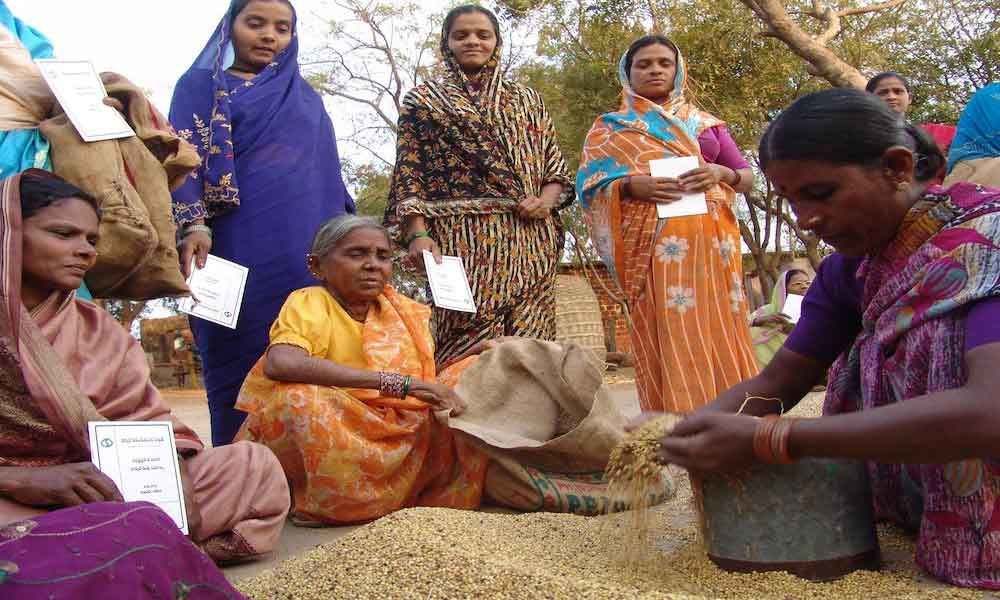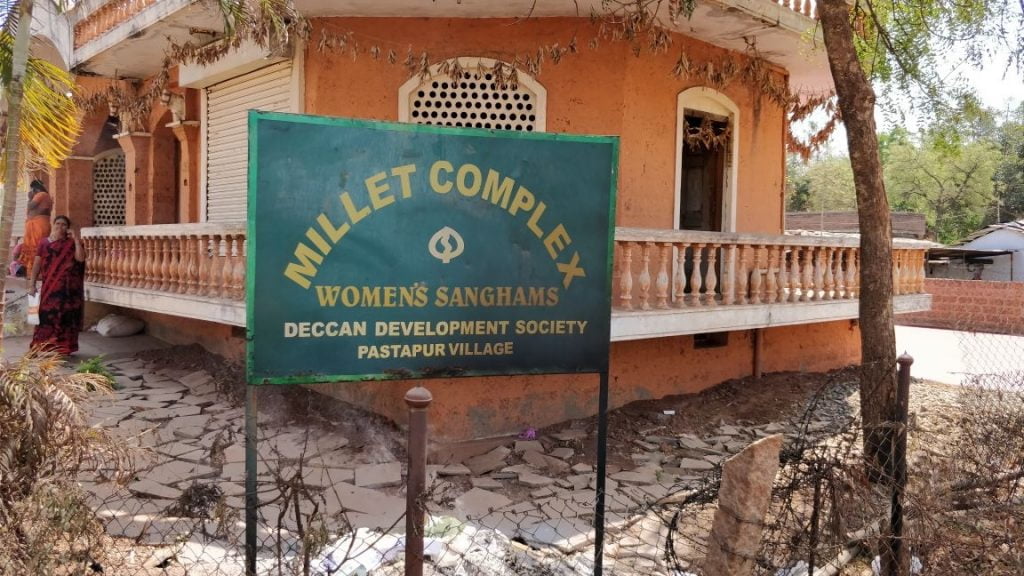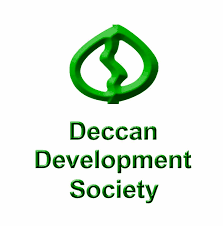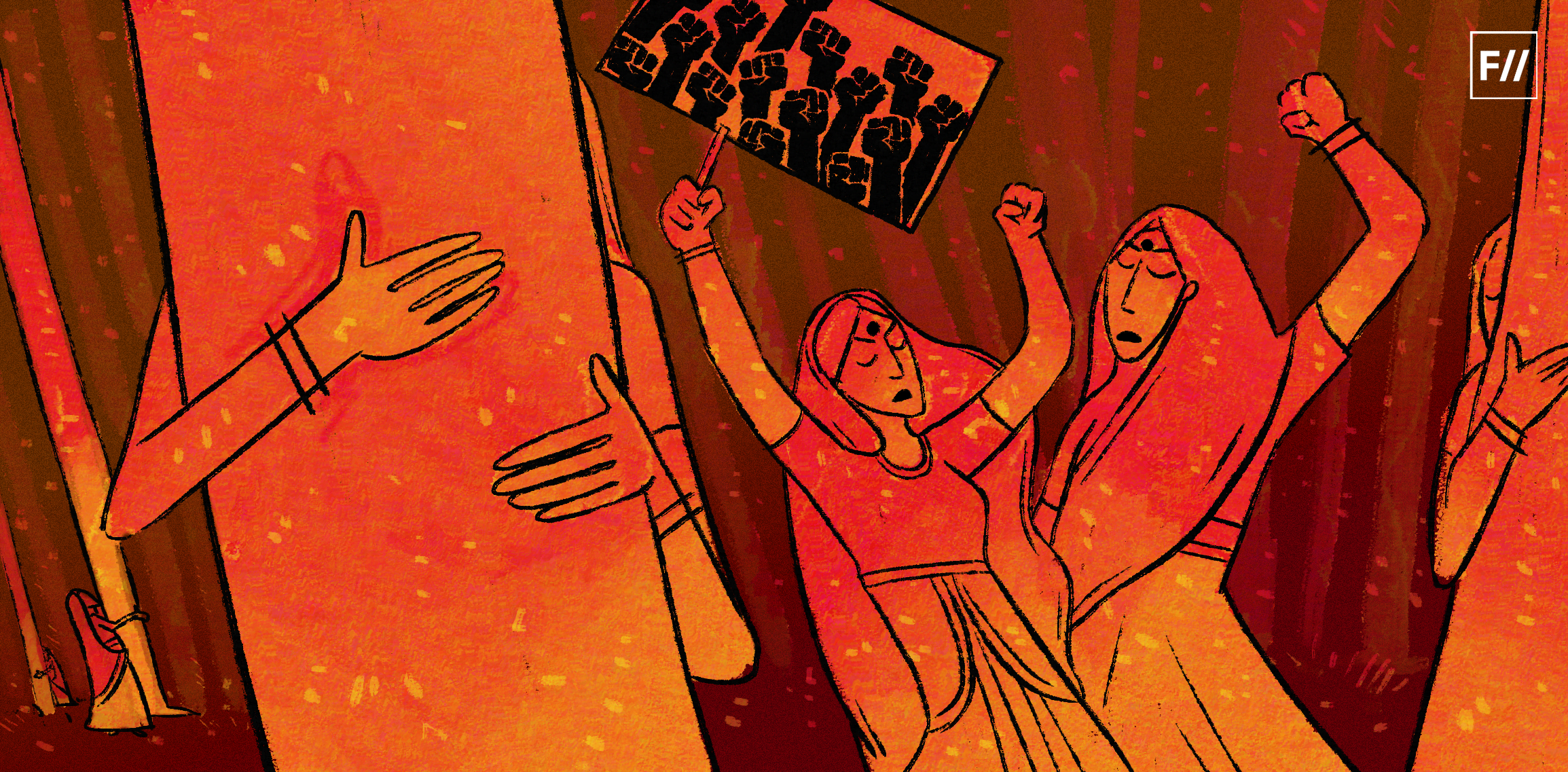Deccan Development Society (DDS) is a 5000 member society of women coming from the poorest and marginalized sections of our society. It operates through Sanghams (small groups), spread over 75 villages. This organisation received the UNDP Equator Prize in September 2019 for their dedication and significant contribution towards a sustainable environment. The award calls DDS Sangham women as ‘an outstanding example of a local, nature-based solution to climate change and sustainable development.’ The Deccan Development Society received the Biodiversity Award on 11th June 2020, of the Prince Albert II of Monaco Foundation for their contribution in preserving the planet.

Their main objectives lie in the consolidation of villages and community governance, an epitome of local needs and priorities. These unsung environmentalists who are Dalits and underprivileged are inspiration for many of us amidst global environmental challenges. The objective which they aim to attain through their model is food security, ecological agriculture and alternate education. The other innovative practices carried out by them are research on non-pesticide management, soil fertility and organic farming. They are enthusiastically engaged in promulgation of green education and green banks.
The grassroots agricultural practices evolved by them have significantly contributed towards maintaining ecological biodiversity, turning degraded lands into productive ones and managing the water sources. These farmers of the Deccan region and their novel initiative are all about their way of farming with clear preferences for crops suitable for cultivation in the region. This organisation has helped thousands of women to reclaim their farmlands and also generated employment for them.
The grassroots agricultural practices evolved by them have significantly contributed towards maintaining ecological biodiversity, turning degraded lands into productive ones and managing the water sources. These farmers of the Deccan region and their novel initiative are all about their way of farming and clear preferences for crops suitable for cultivation in the farming region. This organisation has helped thousands of women to reclaim their farmlands and also generated employment for them.
Their climate and environment friendly agricultural practices have helped not only in securing livelihoods but also ensured proper health and nutrition. Despite their low income levels, they value seeds over monetary benefits. Through their farming approach they have proven the agricultural scientists wrong in certain aspects which the scientists dismiss, for instance, the women lay more emphasis on growing Yellow Sorghum which has more benefits according to them. It requires dry soil for growth, used in fetching and thatching. The farm to kitchen model is a good indicator of food culture. Sorghum and pigeon peas are grown as companion crops as the same combination is used in kitchen food. Hence, biodiversity becomes a celebration of ecological life here which is an expression of symbiotic relationship among farmers, soil, agriculture and environment.

On one hand, when the voices of women go unheard owing to their gender and patriarchal traditions of being a farmer, they have to struggle not only to establish their identity but they also often have lesser access to resources compared to their male counterparts. Here however, they exercise their decision and choices freely and are consulted on various occasions. With their collective abilities and approaches, they not only address inequality and gender gap but also encourage women’s self esteem and empowerment. It has helped them to garner respect in their community and worldwide.
Also read: Dalits Accessing The Environment—Issue Of Identity, Neglect & Survival
Through their wisdom and practice of seed keeping, they aim to strengthen the ecological future by working in harmony with nature against invasive agricultural technologies with a vision of the future of farming. The Deccan Development Society is a people oriented participative approach as a means of expression for the lowest group in the Indian social hierarchy keeping in tandem with access and collective control over natural resources, which promotes sustainable livelihoods by the use of indigenous agricultural technologies along with strengthening the rural and farming communities.

Deccan Development Society also started a community radio channel of their own covering local issues as a means for spreading knowledge about health and nutrition, agriculture, dairy, home remedies and medicine. The women themselves work as correspondents, ground reporters and local performing artists. It is the Asia’s first community radio of Dalit Women in pretty nearly 200 villages. There is an imminent need to attend to the welfare of the rural women farmers and their leadership to become aware of their gender status which continues to be in a dismal state and come up with a constructive plan towards implementing better, empowering measures.
The Deccan Development Society is a people oriented participative approach as a means of expression for the lowest group in the Indian social hierarchy keeping in tandem with access and collective control over natural resources, which promotes sustainable livelihoods by the use of indigenous agricultural technologies along with strengthening the rural and farming communities.
Their undeterred contribution to fight against all odds of environment has made them evolve innovative practices and have established a firm belief in millet crops having extraordinary capacity to withstand climate change. The women emphasize much on the nutritional value of these traditional crops. These women not only demand the recognition of millet crops but expect that the Prime Minister’s call for millet revolution can only be achieved through state policies such as Kisan Samman Yojana that majorly focuses on millet farmers receiving Rs.10, 000 per acre per year as an imperative. In this regard, The AIMS (All India Millet Sisters) had launched an all India campaign for the inclusion of millets in the Public Distributive Systems which was a promise made in the Food Security Act of India, 2013.
Mobile Biodiversity Festival of the Deccan Development Society is a celebration of the environment—a moving exhibition which travels across 28 villages and lasts for 30 days bringing together passionate people to take action for our environment where everybody meets and learns from each other, the ways to protect and conserve rich biodiversity. They derive their agency from environment as against their inescapable fate further accentuated by deprivation of knowledge and capabilities; they seek this opportunity to organise themselves in their own context differently rather than separately, the basic philosophy of which endeavours to disseminate values of being conscious about our surroundings, sustainability and encouraging a collective aspiration, being the key elements.

The six women of the Deccan Development Society who received the award working towards afforestation are: Ms Chikapalli Anasuyamma, oldest member of the Deccan Development Society. Till now, she has grown abut 2 million plants on waste gubbadis or hillocks and set up two dozen neighbourhood forests. She is today fondly called Gubbadi Anasuyamma. Ms. Nagwar Sunandamma, another member, awarded for turning a 90-acre stony life-less hillock into a lush green forest, planting over 2 lakh trees and contributing to the fight against climate change, Ms. Maisanagari Ratnamma, first rural Dalit women recipient of the Vriksha Mitra Award from the Union Ministry of Environment, Ms. Begari Tuljamma, representing 30 Sanghams, Ms. Yerrolla Kanakamma who established a sanctuary for rare local medicinal plants and Ms. Nadimidoddi Anjamma from Gangwar who saved and conserved nearly 100 traditional seed varieties.
Also read: Tulasi Gowda: The Encyclopedia Of The Forest
These women are not just performing their part but facilitating the development of community by playing an active role in mobilising people to take up this ecological responsibility and have a more effective voice in decision making on environment management and Use.
References
- Deccan Chronicle
- India Water Portal
- India Times
- Equator Initiative
- Telagana Today
- Siasat
- New Indian Express
- SheThePeopleTV
- DDS
Featured Image Source: Feminism In India
About the author(s)
Bharti is pursuing Political Science Honors (2nd year) from Indraprastha College for Women, University of Delhi.




